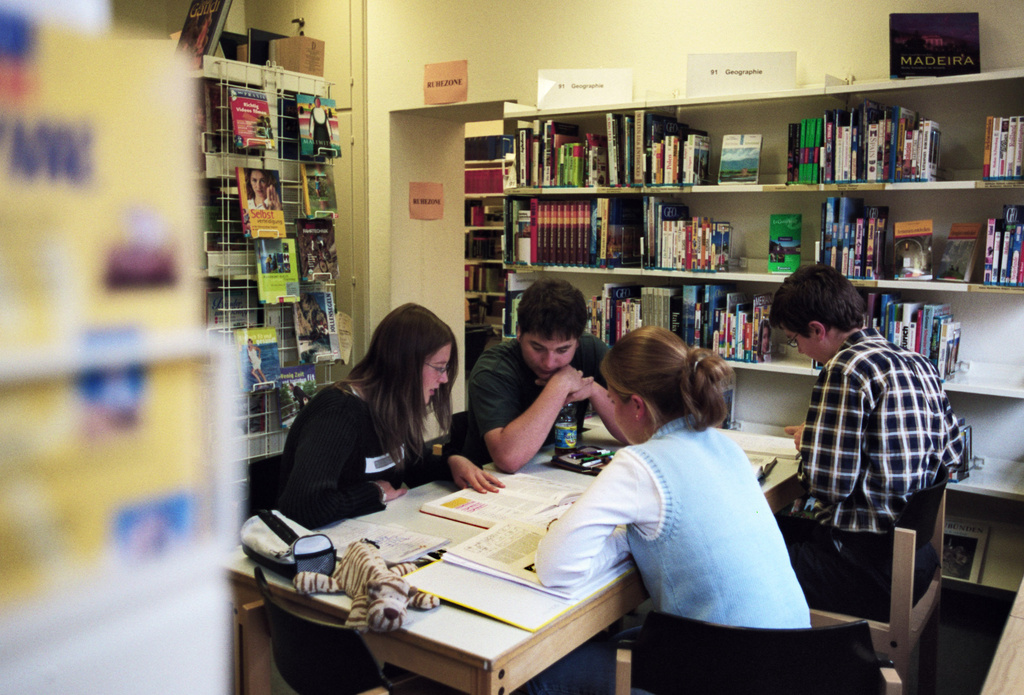Zurich bans locals from international schools

A decision by canton Zurich to stop local children from attending international schools from next year has caused consternation and confusion among many parents.
The ruling from the canton’s education minister Regine Aeppli has added another chapter to the ongoing debate about preserving local culture and language in the face of an ever increasing flood of foreign workers.
Zurich has effectively overruled a 1998 decision to allow anyone to attend international schools without having to give justification.
Some local parents had taken advantage by opting to give their children an international education. Some were motivated by the advantages of exposing their children to more English language in an international environment while others working for multinational firms may have had half an eye on a foreign posting.
The Zurich authorities have become alarmed at the increasing numbers of local children opting out of the state school system.
“Bizarre consequences”
A 2005 update to the cantonal education laws alluded to limits on admissions to non-German speaking international schools. After years of discussions, the benchmarks have recently been fixed.
From the 2012-13 school year, parents now have to prove that they are either likely to move abroad or that their children are continuing a non-German education before being allowed to enroll their children in international schools.
Pupils already enrolled at these schools will be exempt from the new standards.
“The Zurich area international schools vigorously opposed these drafts as we considered them regressive, impractical and contrary to the spirit of the conclusions reached in 1998,” Zurich International School director Peter Mott wrote to worried parents.
“One of the more bizarre consequences is that students living in one of the neighboring cantons are permitted to enroll in an international school in Canton Zurich even if they are not internationally mobile and have no intention of leaving Switzerland, while the same is not possible for students living in Zurich.”
Grey area
The haziness of the new rules – for instance, no definition of evidence is given – could trap “grey area” families where one parent is Swiss, the other foreign, and include children with multiple passports.
“So many of our dual nationality children do not even speak Swiss-German,” Rhonda Mott-Hill, chairwoman of the Swiss Group of International Schools (SGIS) and director of the international school Winterthur, told swissinfo.ch. “They could find it hard to integrate into a local school.”
“We could easily find ourselves in a situation where some parents opt to relocate to another canton and send their children to Zurich international schools,” she added.
Regine Aeppli told Swiss media that up to a quarter of pupils enrolled in some Zurich international schools are local. The schools counter that this figure includes families where only one parent is Swiss.
Overseas workers
Only 16 pupils out of 180 at Winterthur’s international school are pure Swiss, according to Mott-Hill. The Zurich International School said only a one digit percentage of their intake could be properly described as Swiss, rising to a “low double digit” percentage if children of dual nationality parents are included.
There is little doubt that international schools contribute to the allure of Swiss cantons for foreign workers. Many cantons actively encourage foreign firms to set up headquarters inside their borders while the Swiss business community repeatedly says foreign workers are necessary to fill vital job positions.
But the flood of overseas workers has also swelled the proportion of foreigners in the population. This has sparked a backlash as many Swiss feel their traditions, identity and languages are being diluted.
The rightwing Swiss People’s Party is openly opposed to mass immigration during its election campaign, with one advert warning that Swiss children could become a minority in classrooms.
Earlier this year, canton Zurich voters rejected plans to replace Swiss German with High German in pre-school education.
Not contagious
While Zurich’s crackdown on locals entering international schools does not directly follow either of these examples (Regine Aeppli is a member of the centre-left Social Democrat party), the decision further reflects a more general feeling that local identity could be eroded.
There is little evidence that other cantons would follow Zurich’s lead. Unlike Zurich, the authorities in Zug make direct payments to its international school for every pupil on its books.
International schools in Geneva and Vaud also do not feel the same kind of pressure as in Zurich.
“We have not seen any evidence in Geneva of the same kind of debate we have witnessed in Zurich,” Michaelene Stack, director of development at the International School of Geneva, told swissinfo.ch.
“But we are mindful of what has been happening there and we will continue to evaluate its progress.”
There are 40 international schools that come under the umbrella of the Swiss Group of International Schools (SGIS).
In the last few years, the increasing number of international workers and their families arriving in Switzerland has piled pressure on these schools to find places for a growing community of expat children.
Zurich International School now operates from five campuses and has expanded some buildings to cope with demand. It now has more than 1,400 students, more than double the number from five years ago.
The number of students at international schools in canton Zurich is now around 3,400 in total. This represents around 1.9% of the total school population in the canton, up from 0.9% in 2001.
The International School of Geneva has added 1,300 new places since 2006 to accommodate 4,300 pupils today.
Schools in Winterthur, Schaffhausen, Aargau, Zug, St Gallen and Fribourg have either sprung up, relocated or expanded in recent years to keep up with demand.
Such schools typically teach the International Baccalaureate in English – an internationally accepted qualification for university entrance.

In compliance with the JTI standards
More: SWI swissinfo.ch certified by the Journalism Trust Initiative















You can find an overview of ongoing debates with our journalists here . Please join us!
If you want to start a conversation about a topic raised in this article or want to report factual errors, email us at english@swissinfo.ch.